Get Grease Trap Installation in King County, WA
Local contractors in King County, WA, can install grease traps to prevent plumbing clogs and odors in restaurants, cafes, and food service facilities.
Property owners in King County, WA, who are planning commercial or residential upgrades often find that installing a grease trap is an essential step to ensure proper waste management and compliance with local regulations. Whether updating a restaurant kitchen or managing wastewater for a food service operation, having a professionally installed grease trap can help prevent plumbing issues and maintain smooth operations. Exploring options from nearby service providers can provide the guidance needed to select the right system for specific property needs, making the planning process more straightforward.
As you consider your grease trap installation project, it’s helpful to compare offerings from local contractors who understand the unique requirements of properties in King County. Connecting with experienced service providers can lead to solutions tailored to your property’s size, usage, and regulatory standards. Keep reading to discover how local experts can assist in planning and executing a grease trap installation that aligns with your property’s operational goals.
- Commercial kitchens - businesses in need of grease trap installation to comply with health department regulations.
- New restaurant construction - when establishing a new dining facility that requires proper waste management systems.
- Food processing facilities - facilities looking to install grease traps to prevent plumbing issues and meet industry standards.
- Upgrading existing systems - property owners seeking to replace or improve outdated grease traps in commercial properties.
- Food service establishments - cafes, delis, or catering businesses that need reliable grease trap setup to maintain smooth operations.
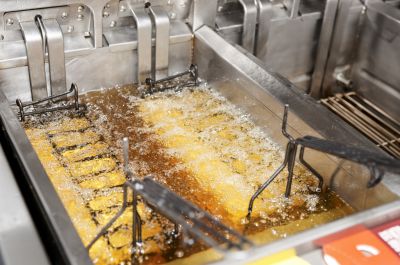
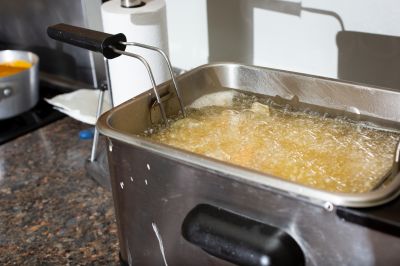
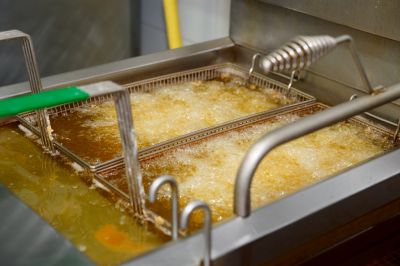
Grease trap installation services involve setting up specialized interceptors designed to capture fats, oils, and grease (FOG) before they enter the plumbing system. These systems are typically installed underground near commercial kitchens, restaurants, cafeterias, or food processing facilities. Proper installation ensures that cooking byproducts do not clog pipes or cause backups, helping property owners maintain smooth drainage and prevent costly plumbing issues. Experienced contractors can determine the appropriate size and placement of the grease trap based on the property's needs and local regulations, ensuring effective operation from the start.
Many common problems faced by property owners can be mitigated with a well-installed grease trap. Without proper interception, grease and FOG can solidify within pipes, leading to blockages that disrupt daily operations and require expensive repairs. Over time, accumulated grease can also cause foul odors and attract pests, creating an unpleasant environment. Installing a grease trap helps prevent these issues by capturing and holding FOG, allowing it to be safely removed during routine maintenance. This proactive approach can save property owners from emergency plumbing calls and ensure compliance with health and safety standards.
Properties that typically benefit from grease trap installation include restaurants, cafes, catering businesses, and other food service establishments. Commercial kitchens generate significant amounts of FOG, making a grease trap essential for maintaining plumbing health and avoiding regulatory violations. Additionally, some industrial facilities involved in food processing or preparation may require grease interceptors as part of their sanitation and waste management systems. Even larger residential complexes with communal kitchens or food preparation areas might need these systems to prevent plumbing problems and ensure smooth operation.
Homeowners in areas with commercial kitchens or those planning to start a food-related business often seek grease trap installation services to protect their plumbing infrastructure. While residential properties usually do not require large-scale grease interceptors, properties with extensive kitchen facilities or home-based food businesses may benefit from smaller, appropriately sized systems. Local contractors can assess the property's needs, recommend suitable solutions, and handle the installation process. Contacting experienced service providers ensures that the grease trap is correctly installed and maintained, helping property owners avoid future plumbing issues and maintain a clean, functional kitchen environment.
The overview below groups typical Grease Trap Installation projects into broad ranges so you can see how smaller, mid-sized, and larger jobs often compare in King County, WA.
In many markets, a large share of routine jobs stays in the lower and middle ranges, while only a smaller percentage of projects moves into the highest bands when the work is more complex or site conditions are harder than average.
Smaller Repairs - Typical costs for minor grease trap repairs or cleaning range from $250 to $600. Many routine jobs fall within this middle range, depending on the size and accessibility of the trap.
Standard Installation - Installing a new grease trap usually costs between $1,000 and $3,000. Local contractors often handle these projects within this range, with larger or more complex setups approaching $4,000.
Full Replacement - Replacing an entire grease trap system can range from $2,500 to $6,000 or more. Larger, more intricate projects tend to push into higher tiers, especially in commercial settings.
Complex or Custom Projects - For extensive or customized grease trap installations, costs can exceed $5,000, with fewer projects reaching this level. These jobs often involve specialized equipment or challenging site conditions.
Actual totals will depend on details like access to the work area, the scope of the project, and the materials selected, so use these as general starting points rather than exact figures.
Septic Tank Installation - this project involves planning and installing underground systems that require similar site assessment and excavation skills as grease trap setups.
Commercial Kitchen Plumbing - installing and maintaining plumbing systems in commercial kitchens shares expertise in pipework, drainage, and compliance with sanitation standards.
Stormwater Drainage Systems - designing and installing drainage solutions involves understanding underground piping and flow management, akin to grease trap infrastructure.
Wastewater Treatment System Installation - setting up systems for managing wastewater involves planning, piping, and site preparation skills comparable to grease trap installation services.
Industrial Plumbing Projects - large-scale plumbing tasks in industrial settings require similar planning, tool use, and underground work as grease trap installations.
Food Service Equipment Installation - installing commercial food processing and sanitation equipment involves plumbing and site setup skills related to grease trap services.
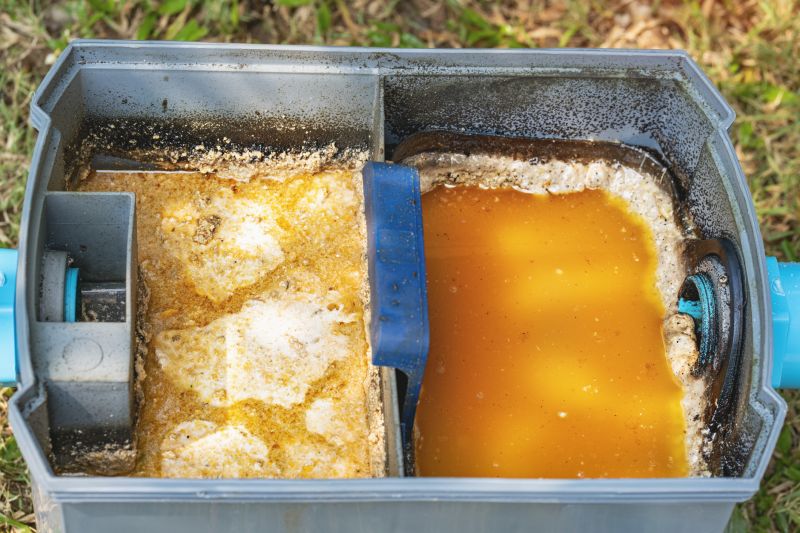
When selecting a contractor for grease trap installation, it’s important to consider their experience with projects similar in scope and complexity. Homeowners should look for service providers who have a proven track record of handling grease trap installations in environments comparable to their own, such as restaurants, commercial kitchens, or residential properties with specific plumbing needs. An experienced contractor will be familiar with local codes and best practices, helping to ensure the installation is performed correctly and efficiently.
Clear communication about project expectations is essential when comparing local contractors. Homeowners should seek providers who can offer detailed explanations of the installation process, materials used, and any preparations needed beforehand. Having written documentation of what the service includes helps prevent misunderstandings and provides a reference point throughout the project. Good communication also involves responsiveness and the ability to answer questions thoroughly, which can contribute to a smoother experience from start to finish.
Reputable references and the ability to provide proof of quality work are key factors in choosing a service provider. Homeowners are encouraged to ask for references or examples of past projects similar to theirs, to gain insight into the contractor’s reliability and workmanship. Additionally, positive feedback from previous clients can serve as an indicator of consistent performance. Ultimately, selecting a local contractor who communicates well, demonstrates experience with similar projects, and can provide trustworthy references can help ensure a successful grease trap installation tailored to the specific needs of the property.
Property owners in King County, WA use Grease Trap Installation services for practical projects around their homes and businesses. This guide focuses on everyday jobs and straightforward project options.
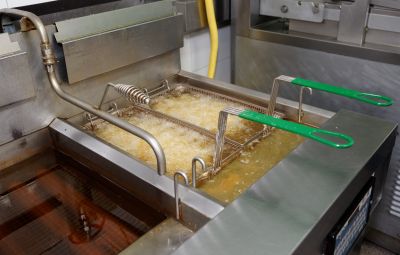
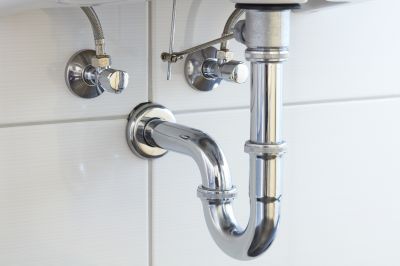
Grease trap installation services are often needed by property owners in King County, WA who operate restaurants, cafes, or commercial kitchens. When existing grease traps become outdated or fail to meet local regulations, local contractors can provide the necessary upgrades or new installations to help keep kitchens compliant and functioning smoothly. Property owners might also seek installation services when opening a new food service business or renovating an existing space, ensuring the plumbing system can handle grease waste effectively.
In addition, property managers and business owners may look for grease trap installation when experiencing persistent plumbing issues related to grease buildup or odors. Properly installed grease traps help prevent clogs and backups in the plumbing system, which can be costly and disruptive. Local service providers are equipped to handle these projects efficiently, offering solutions tailored to the specific needs of commercial properties across King County and nearby areas.
What is involved in grease trap installation? Grease trap installation typically includes assessing the site, selecting the appropriate size, and properly connecting the trap to the plumbing system. Local contractors handle the entire process to ensure compliance with local codes and standards.
Why should I hire a professional for grease trap installation? Hiring experienced service providers helps ensure the installation is performed correctly, reducing the risk of plumbing issues and ensuring the trap functions effectively for grease management.
What types of grease traps are available for installation? There are various types of grease traps, including underground, above-ground, and inline models. Local contractors can recommend and install the best option based on the property’s needs.
Are there specific regulations for grease trap installation in King County? Yes, local service providers are familiar with regional codes and requirements, ensuring the installation meets all necessary regulations and standards.
How do I find qualified service providers for grease trap installation? You can compare local contractors who specialize in plumbing and grease trap installation through lead generation platforms that connect customers with experienced professionals in the area.
Grease trap installation for restaurants - Ensures proper waste management in commercial kitchens, helping to prevent plumbing issues caused by grease buildup.
Commercial property maintenance - Supports restaurant or food service businesses in complying with local regulations by installing effective grease traps.
Food service facility upgrades - Provides property owners with a way to improve sanitation and reduce odors by installing or upgrading grease traps.
New construction plumbing projects - Assists builders and developers in integrating grease trap systems into new restaurant or catering facility setups.

If you are thinking about Grease Trap Installation for a property in King County, WA, this guide is meant to help you understand the work, the typical project types, and how different options might fit your plans.
When you are ready, you can use the quote form on this page to share a few details about your project. From there, local pros can review the basics and respond with options that match what you have in mind.



